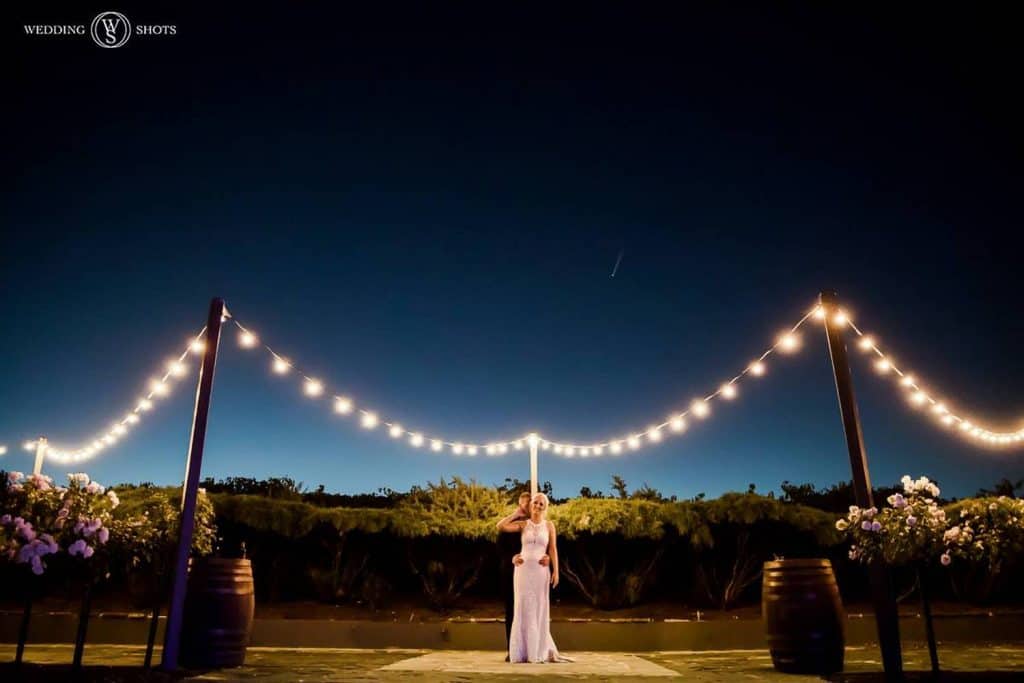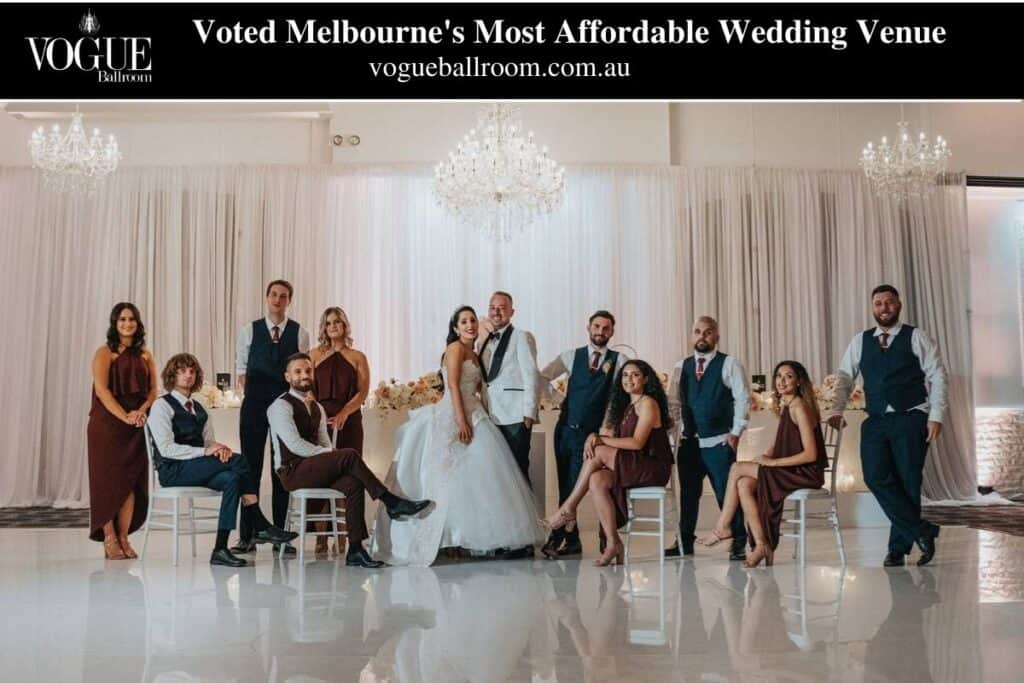Wedding speeches can seem insurmountable if you suffer from public speaking anxiety. But this is the perfect time to thank those who have helped make your new life together so wonderful by celebrating your wedding with you.
Bridal speeches are not the norm. The father, groom, and bestman all give speeches, and the guests listen politely. Traditionally, brides would be the centre of attention but not be allowed to make any public speeches. Nonetheless, as of this moment, that will no longer be the case. One should encourage a bride who wants to deliver a speech at her own wedding. We fully support the idea that a bride deserves the same level of attention as any other guest on her wedding day.
Planning to give a toast for both bride and groom. Awesome! We've got the advice you need to write a wedding speech that will have everyone applauding and laughing after the speech delivery.
Table of Contents
Decide on the logistics
Get the big picture sorted out before diving into the specifics of speech writing. When is the speech, and who is giving it? Which, if either, are you doing: speaking together or separately? If you have two documents, which one do you present first? When exactly do you plan to deliver the speech at night? How long is the planned speech? We need to know the mood going in.
It all begins with your gratitude. It goes without saying that you should express gratitude to everyone who has helped you and your new spouse throughout the years, including your parents, siblings, close friends, and coworkers. The act of expressing gratitude to others can be done quickly and is highly recommended. Compile a list of everyone who has helped make your big day a success, and send them a heartfelt thank you.
Thank your guests for attending, your wedding party members for their help and support, your out-of-town guests for making the trip, your parents for their unending support, and the parents of your new spouse for welcoming you into their family. Alternatively, express your gratitude to whoever merits it.
Don't stop short of recognising and thanking those who have helped you. You can make this part of your speech more entertaining by telling a quick anecdote about each person or talking about how much their help meant to the two of you as you prepared for the wedding.
Mention those who couldn’t be there
This is completely discretionary, but it is a lovely opportunity to honour those who were unable to attend the wedding. There may have been influential people who were unable to attend due to health or travel issues. You may also wish to remember loved ones who have passed away on your wedding day. Insert a succinct and entertaining story here.
Despite who you thank, always remember to thank your brand-new partner.
The groom's toast and the acknowledgement of the bride and groom's parents are the high points of the speech, so save them for last. Though cliche, try to convey what you're really feeling. Don't try to outdo the romantic cliches or quote movies or songs. Take notes on your initial thoughts, and something will form.
The best part is that you get to gush about your boo right now! Share a humorous anecdote from wedding planning or a touching account of how you met and fell in love. The goal here is to relate a charming anecdote, not something mortifying. And remember that brevity is key, especially if you and your partner are swapping anecdotes. You should also check with the other speakers to make sure you aren't repeating themselves.
If you are someone who can "do funny," remember to keep it safe and try to keep it clean, especially if there are parents around. Your friends may find the occasional disrespectful joke amusing, but your new in-laws may not. You know your audience and situation best.
End with your partner
Yes, you did it! You've reached the final point in your talk. All that's left to do is turn to your partner and start crying. Here is your chance to tell your new spouse how much they mean to you, how much today means to you, and anything else that didn't fit in your vows.
Practice makes perfect
If you're feeling anxious, practising your speech will help. Practice your speech in front of the mirror, with a member of your wedding party, or even your dog. You should also practise with your partner if you intend to make the statement jointly and divide up the various sections. It's perfectly acceptable to save some of the speech's contents as a surprise for the big day. The rest can be practised together so that everyone is on the same page about when to speak.
Mix it up
Remember, it's your wedding, do it your way. In that case, perhaps you could give your speech at the rehearsal dinner in front of a smaller audience and get over your fear of public speaking before such a large group of people. Don't wait for the couple to give their speech if you're afraid you'll start crying at the mic. What's more, don't bother giving a speech at all if the thought of doing so fills you with dread. You can thank those who played a role in making your wedding day special by exchanging cards or having heartfelt conversations with each person.
Last minute dos & don’ts
DO: Don't try to wing it; jot down your thoughts instead. Have a hard copy handy in case your phone dies mid-speech and you have to scramble to find it.
DON’T: Just hold off on giving your speech until you've had a few drinks. Give your speech at 7:00 if you know you'll be tipsy by 8:00.
DO: do not hesitate to comment on the speeches of others. If you're up last, you have plenty of leeway to wing it, whether that means thanking your dad for the kind words or defending yourself in the story your best man just told.
DON’T: dominate the conversation and refuse to yield the floor. Share the speech equally if you and a friend will be delivering it.
DO: Observe courtesy towards your visitors' time. Be succinct and to the point when giving speeches, especially if you have many scheduled.
DON’T: Don't be shy about sharing your most embarrassing, personal, or inside joke experiences. When your grandma walks up to you and asks about that time you had a pregnancy scare in Vegas, you'll be sorry you told her that story.
FAQs About Wedding Speech
- Welcome and thank wedding guests. Kick-off your bride speech by first welcoming your guests and thanking them for showing up to celebrate your wedding day.
- Thank the VIPs.
- Share a brief story.
- Connect the story to your wedding day.
- Close with a wedding toast.
Generic. Dear friends and family of the Bride and Groom, we welcome and thank you for being part of this important occasion. We are gathered together on this day to witness and celebrate the marriage of Name Of Bride and Name Of Groom. Every one of us has a deep desire to love and to be loved.
"The end of a wedding speech should summarize the feeling of the speech and the occasion," Chertoff says. "The speaker may want to ask everyone to raise a glass to toast the couple — or they may want to end by saying how much they love the newlyweds." It's really that simple.
- Open with a startling statement or question. Don't lead with a joke or a reference to how nervous you are.
- Address your audience.
- Zero in one to three points.
- Rehearse.
- Record yourself practicing.
- Lay off the booze.
- Let nerves work to your advantage.
- Be yourself.
Whoever is hosting the event should speak and take the microphone as soon as guests have found their seats. This first toast is most often made by the bride's parents (or father) and should combine both a toast to the happy couple and a welcome message to the guests.

Conclusion
It's highly recommended that you take the time to show gratitude to other people in your life. One should encourage a bride who wants to give a speech at her own wedding. Here are some tips to help you write a wedding speech that will get everyone applauding in unison. If you have the ability to "do funny," remember to be respectful of others' health and safety. Don't compete with cheesy romantic movie or song references.
Be sure to remember and honour those who were not able to share in your special day. Use a mirror, a member of the wedding party, or even the dog to practise your vows and toasts. If you feel the urge to cry at the microphone, don't wait for the couple to finish their speech. There is more room for error if you're giving the final presentation.
Content Summary
- If you suffer from public-speaking anxiety, the task of writing a wedding speech can seem insurmountable.
- Great time to express your gratitude to your loved ones for sharing in the joy of your new beginning as husband and wife.
- It is not customary for the bride to give a speech at the reception.
- A bride who wishes to give a speech at her own wedding should be encouraged to do so.
- Planning to give a toast as the bride or groom?
- It all begins with your gratitude.
- Don't stop short of recognising and thanking those who have helped you.
- An opportunity to honour those who were unable to attend the wedding.
- Despite who you thank, always remember to thank your brand-new partner.
- The groom's toast and the acknowledgement of the bride and groom's parents are the high points of the speech, so save them for last.
- You know your audience and situation best.
- Here's your time to tell your new spouse how much they mean to you and anything else you didn't say in your vows.
- If you're feeling anxious, practising your speech will help.
- Practice your speech in front of the mirror, with a member of your wedding party, or even your dog.
- It's perfectly acceptable to save some of the speech's contents as a surprise for the big day.
- Remember, it's your wedding, do it your way.
- Share the speech equally if you and a friend will be delivering it.
Vines of the Yarra Valley Blog
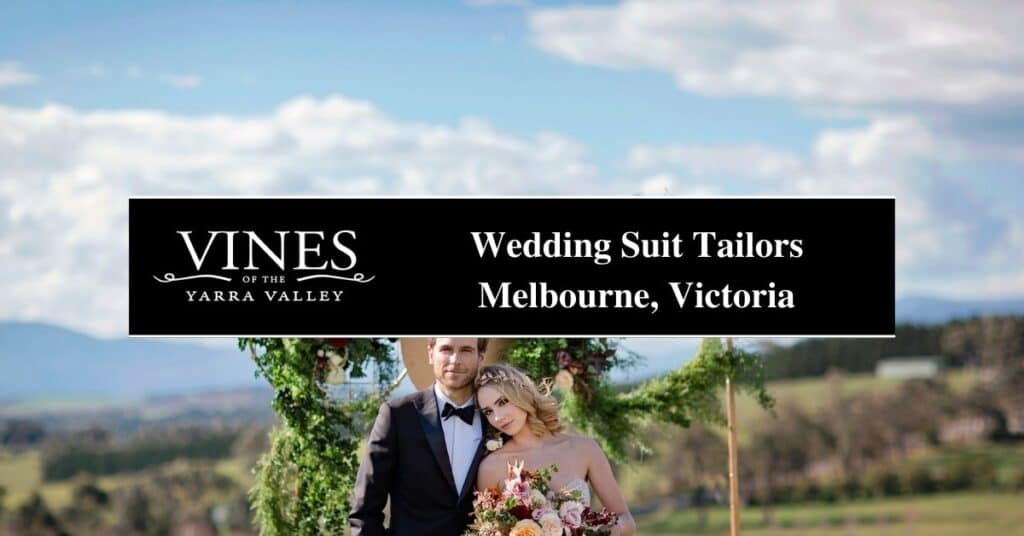
40+ Best Custom Suit Tailors in Melbourne, Victoria (2024)
Melbourne, Victoria is a hub for fashion and style. As one of the most desirable cities in Australia, Melbourne has some of the best tailors and custom suit designers in all of the country. So whether you are looking to buy your first suit or need something tailored just right- there are plenty of options […]

What are the types of wedding catering services?
We’ve noticed that catering, especially for first-time customers, can be a bit daunting. Whether you’re a business ordering for a meeting or a newly engaged couple organising your dream wedding, you can streamline your caterer and save money. In spite of this, it might be difficult to narrow down the alternatives when faced with hundreds […]

How To Plan Your Fashion Shoots?
It’s usual practise to set aside several weeks, if not months, to plan out every detail of a fashion photoshoot. The burden of getting things done is lightened when one has more of it. The following phase, after samples have been prepared and evaluated, is to market and promote the collection. However, you’ll need to […]
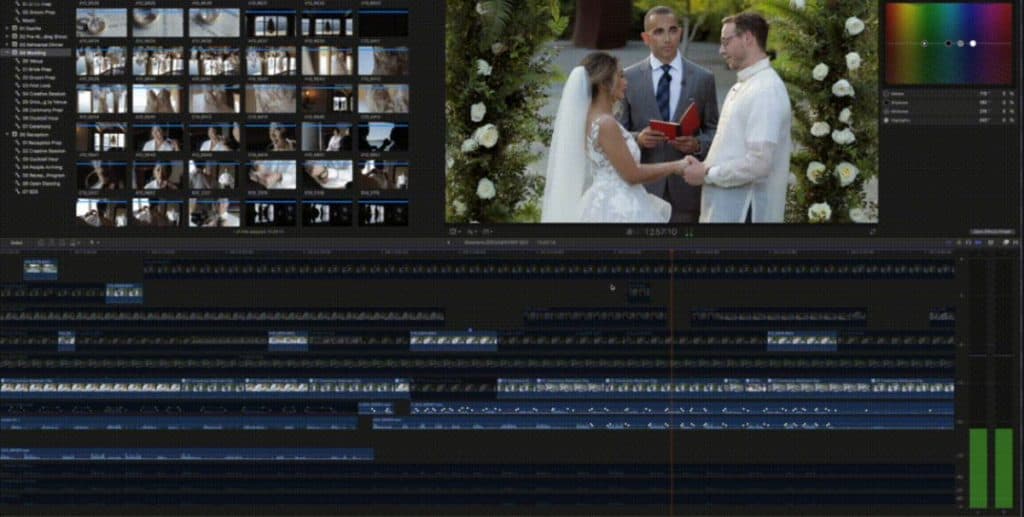
What Should a Wedding Video Include?
It’s a lot of pressure to be in charge of shooting the wedding video. Planning the shots and making sure you have the correct gear shooting at the right resolution are the greatest ways to decrease stress and get all of the footage the couple needs. You need to be at the appropriate spot at […]

What Should You Not Do on Your Honeymoon?
Not taking adequate precautions can lead to undesirable outcomes. This is the last thing any couple wants to happen on their honeymoon. As a reward for all your hard work in preparation for the big day, a honeymoon can be the perfect time to unwind and spend quality time with your new spouse. The months […]

How Do You Make A Bachelor Party Special?
If you’re like most people, you’ve been to at least one bachelor party in your life. And if you’re like most people, you probably think that they’re all pretty much the same. But believe it or not, there are ways to make a bachelor party special – even if you’re on a tight budget. So […]

Top 20 Male Strippers in Brisbane, Queensland [2022]
Choosing the best male strippers in Brisbane, Queensland, for your hens party can be a daunting task. Brisbane, Queensland, is home to many hens looking for the best male strippers around. It can be tough to know who to trust, though. Luckily, we’re here to help! We’ve compiled a list of the best male strip […]
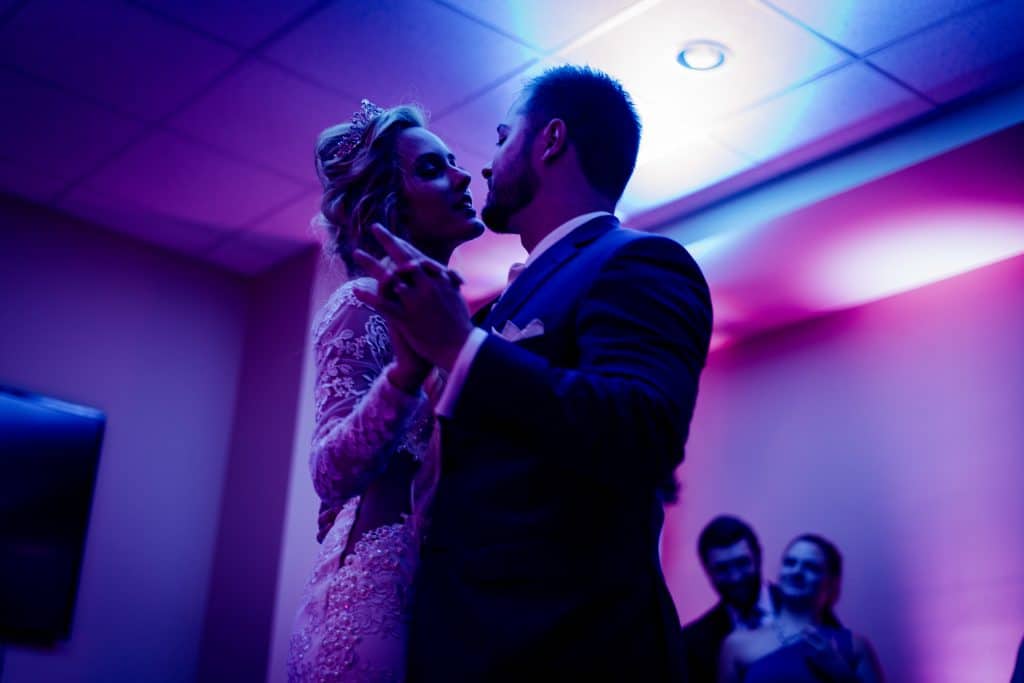
Can You Have a Wedding Without a DJ?
Many future brides have asked us what alternatives there are to hiring a DJ or band for their nuptial celebrations. While we recommend hiring musicians to play at your wedding, if you’re on a tight budget or having a less traditional ceremony, creating a killer wedding dance playlist on your own or with the help […]

Sporty Hens Party Ideas in Sydney
Table of Contents Sporty Hens So you’re organising a hens party but you don’t want to do the ‘typical’ thing… and you want to make sure all of the bride’s friends will be included… and you want to ensure everyone has a brilliant time even though they don’t all know each other… stress no more, […]

How to choose shoes for the groom?
Unlike most women, most men do not place a high priority on looking fashionable. In this piece, we’ll do our best to disabuse men of the notion that they don’t need to worry about their appearance by demonstrating the significance of adopting a well-executed dress code, a distinctive style, and an appreciative attitude towards one’s […]

